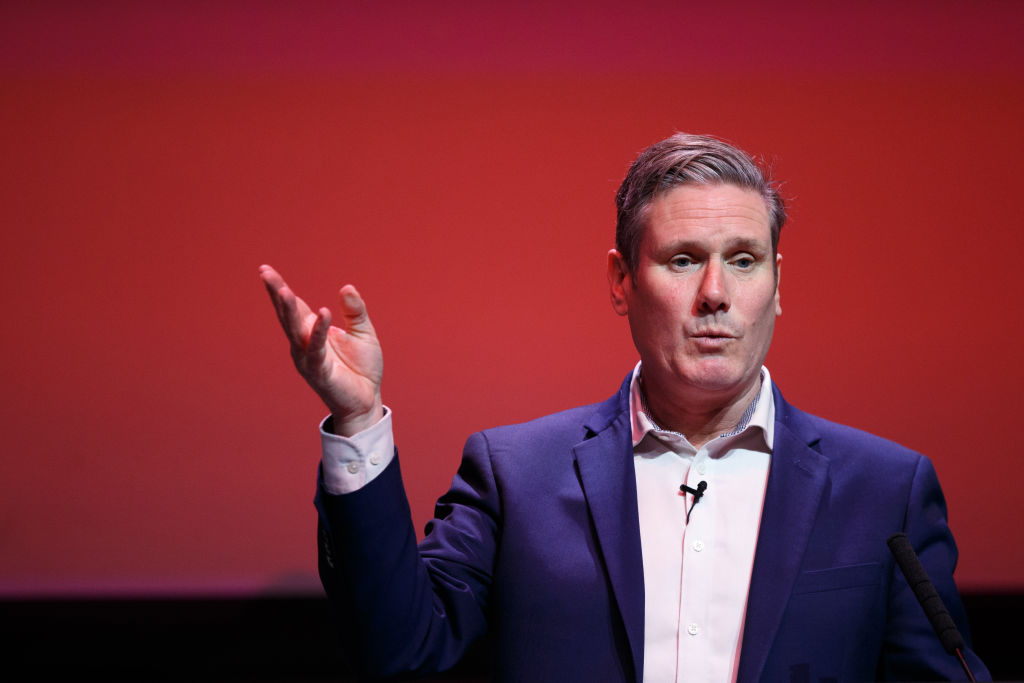By most measures Keir Starmer has, politically speaking, won the war when it comes to Covid. Since becoming Labour leader in early April he has hardly put a foot wrong, balancing his desire to appear supportive of Boris Johnson’s government during this unique moment of national crisis while retaining the freedom to expose and criticise its many mistakes. But as Britain comes out of lockdown, can he win the peace?
In the early stages of the lockdown voters were uncertain about the new Labour leader and, understandably, rallied behind Johnson: according to YouGov, in April 46 per cent thought Boris Johnson was best qualified to be Prime Minister, while only 22 per cent thought Starmer was. The latest polling now shows both men are on level pegging at 33 per cent. This is clearly cause for celebration in the Labour leader’s office – but it is worth recalling that in the aftermath of the 2017 general election Jeremy Corbyn was also on equal terms with Theresa May. Moreover, about one third of the public currently remain unconvinced by either man. With possibly four years before the next election there is still much to play for.
The YouGov figures suggest Starmer’s rise in the polls is matched by Johnson’s fall, especially as a result of the Prime Minister’s refusal to sack Dominic Cummings for breaching his own lockdown strictures. This has led to a general collapse in public confidence in the government’s handling of the crisis. There is an old saying that ‘oppositions don’t win elections, governments lose them’. Even so, Starmer has effectively highlighted Johnson’s slowness to impose a lockdown, neglect of care homes and confusion of schools reopening, while also actively trying to win back voters lost to Labour since 2010. In his new regular phone-in slot on LBC and during a series of online meetings with voters across the regions (all faithfully reported in the local media) the Labour leader has declared that his is a ‘patriotic party’ and even a ‘party of business’. The last leader to position himself in such a clear and confident manner was Tony Blair, still a toxic figure in the Labour party. But if Starmer has been vague on policy – we still don’t know what he would have dropped from Labour’s 2019 manifesto – it has had an immediately positive pay-off: he has scored the highest ratings of any Leader of the Opposition since… one Tony Blair.
But despite the improvement in Starmer’s personal ratings the party he leads still trails the Conservatives. Refashioning how voters see a post-Corbyn Labour is a much harder task. During this early period of his leadership Starmer has been blunt about his intentions, saying he wants to present ‘a Labour Party that’s credible and [for] people [to] say “well I can see them running the country”’. With that in mind he has been saying all the right things while avoiding some of the more obvious traps into which Corbyn might have fallen. He notably balanced disapproval of the pulling down of Edward Colston’s statue with criticism of the fact it had not been taken down in a more orderly fashion years before. And it is clear that he has no intention of losing the culture war over the future of Churchill’s statue.
But Starmer needs to do much more than this to make Labour a credible party of government – beating Johnson in the polls is only the first stage in the party’s route back to power. Right now the most popular politician in Britain isn’t Starmer but Chancellor Rishi Sunak. Should the Conservatives ditch Johnson in favour of Sunak, Starmer could easily find himself in the same position as Neil Kinnock. In 1990 the then-Labour leader was riding high in the polls against Margaret Thatcher thanks to the Poll Tax but once she was replaced by John Major he lost ground and the Conservatives won the 1992 general election.
If Starmer is to win the peace he must go beyond establishing his competence and triumph in the battle of ideas. In particular he needs to outline what kind of Britain he wants to emerge from the Covid crisis. As he claimed in his first speech as Labour leader, ‘we cannot go back to business as usual. This virus has exposed the fragility of our society. It has lifted a curtain’. In particular he argued, the Covid crisis has made the case for ‘good government, a government that saves lives and protects our country’. With Johnson perhaps pushing Britain too quickly out of lockdown, and the country facing its deepest-ever economic recession, it is time Starmer told voters what that means in clear and certain terms.






Comments